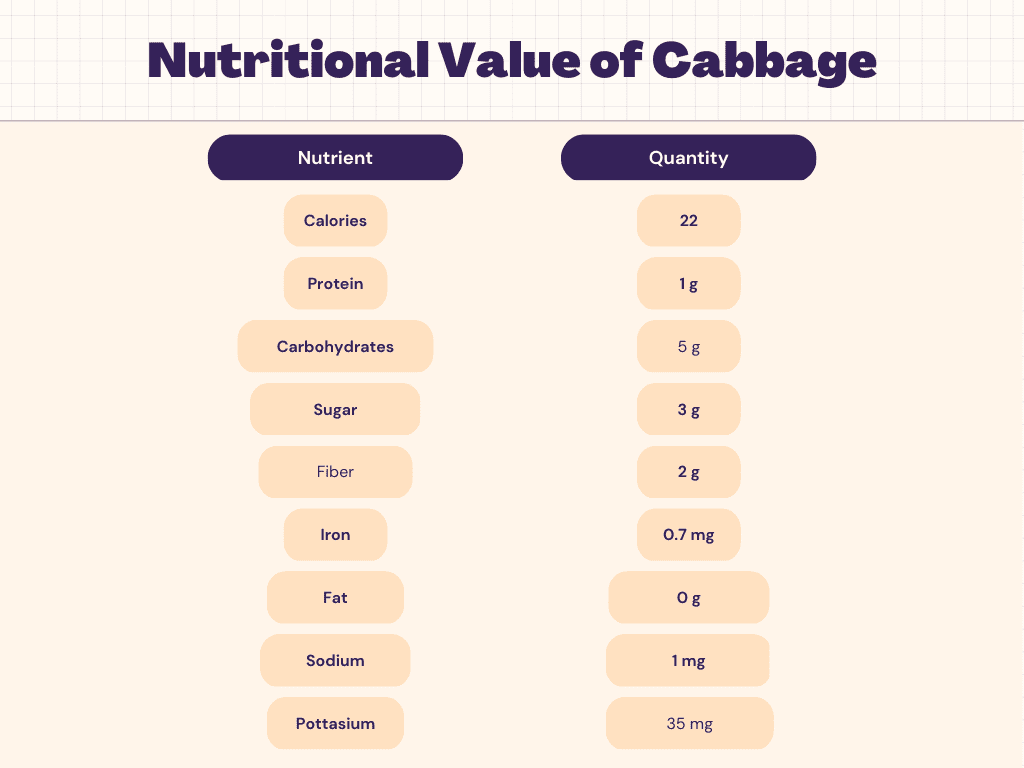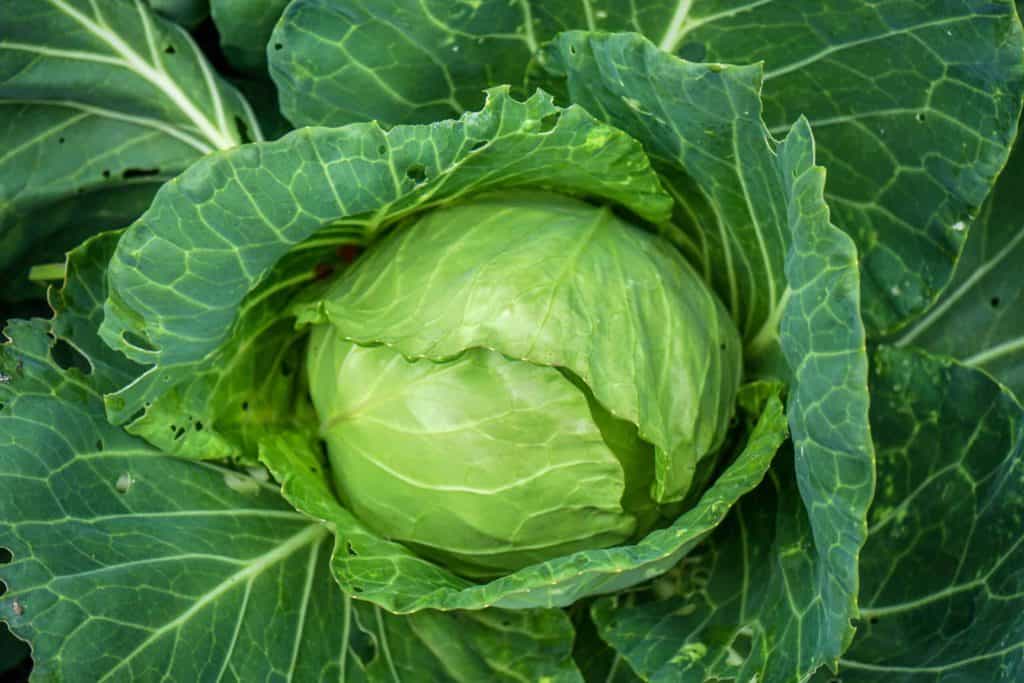Although it is sometimes thought of in connection with the infamous “cabbage soup diet,” cabbage is a crisp, affordable, and adaptable vegetable that can be used in a variety of dishes and provide crunch and color to salads and sandwiches. Cabbage is a terrific addition to a healthy lifestyle because it contains fiber and other minerals like potassium and vitamin K.
Nutritional Value of Cabbage

Nutritional Facts of Cabbage
Carbs
Just over 5 grams of carbohydrates—roughly 50% fiber and 50% natural sugars—are present in one cup of raw cabbage.
Fat
In essence, cabbage is a fat-free food. One serving of one cup has less than one gram.
Protein
One gram of protein can be found in one cup of raw cabbage.
Calories
A cup of chopped cabbage contains only 22 calories, making it a low-calorie dish.
Health Benefits of Cabbage
- Helps in the management of Diabetes – Cabbage is a nonstarchy vegetable with a high fiber content and few carbs. Because of the fiber in cabbage, blood sugar levels remain steady, avoiding risky highs and lows. Follow our Diabetes Plans.
- Helps reduce belly fat – Broccoli, kale, Brussels sprouts, cauliflower, cabbage, and other cruciferous vegetables have a highly special phytonutrient molecule that can aid in reducing stomach fat. Check our Weight loss plans here.
- Helps with Vision- The vitamin A compounds lutein and zeaxanthin, which are known to build up in the retina and are particularly beneficial for protecting vision, are abundant in cabbage.
- Helps in lowering the risk of Cancer – defends against a variety of cancers. The chemicals in cruciferous vegetables activate liver enzymes and bind carcinogens, reducing the risk of colon, breast, prostate, and lung cancer.
- Supports brain health – It is possible to increase memory and attentiveness with proper eating and Cabbage has nutrients that improve blood flow to the brain.
- Supports cardiovascular health – Fiber and potassium are two very essential elements for heart health which \are also found in abundance in cabbage.
Vitamins & Minerals in Cabbage
A good supply of potassium, folate, and vitamin K is cabbage. Additionally, cabbage has small amounts of calcium, iron, vitamin A, and vitamin C.
The Bottom Line
Low in calories and high in vitamins, minerals, and antioxidants is cabbage. Strong antioxidants found in cabbage may aid to decrease inflammation. Vitamin C is a powerful antioxidant and is necessary for many vital bodily processes. The amount of this nutrient in a cup of red cabbage is roughly 56% of the DV (89 g). Insoluble fiber, found in cabbage, helps maintain a healthy digestive system by feeding good bacteria and encouraging regular bowel motions.
FAQs
How much Cabbage is too much Cabbage?
According to the Linus Pauling Institute, excessive cabbage consumption may result in hypothyroidism. Thyroid hormone shortage can occur when there is a combination of low iodine intake and high cabbage eating, such as 1,000 to 1,500 grams per day.
Should I eat cabbage before or after exercise?
It is better to avoid fatty or high-protein foods within two hours of doing out because they take longer to digest. Additionally, it’s better to avoid meals like onions, garlic, and cabbage before working out since they can upset your stomach.
What are the benefits of Cabbage?
- Keeps your inflammation in check
- Filled with vitamin c
- Helps with Digestion
- Keeps the heart healthy
- Helps manage Diabetes
- Protects vision
- Supports brain health
- Improves cardiovascular health









